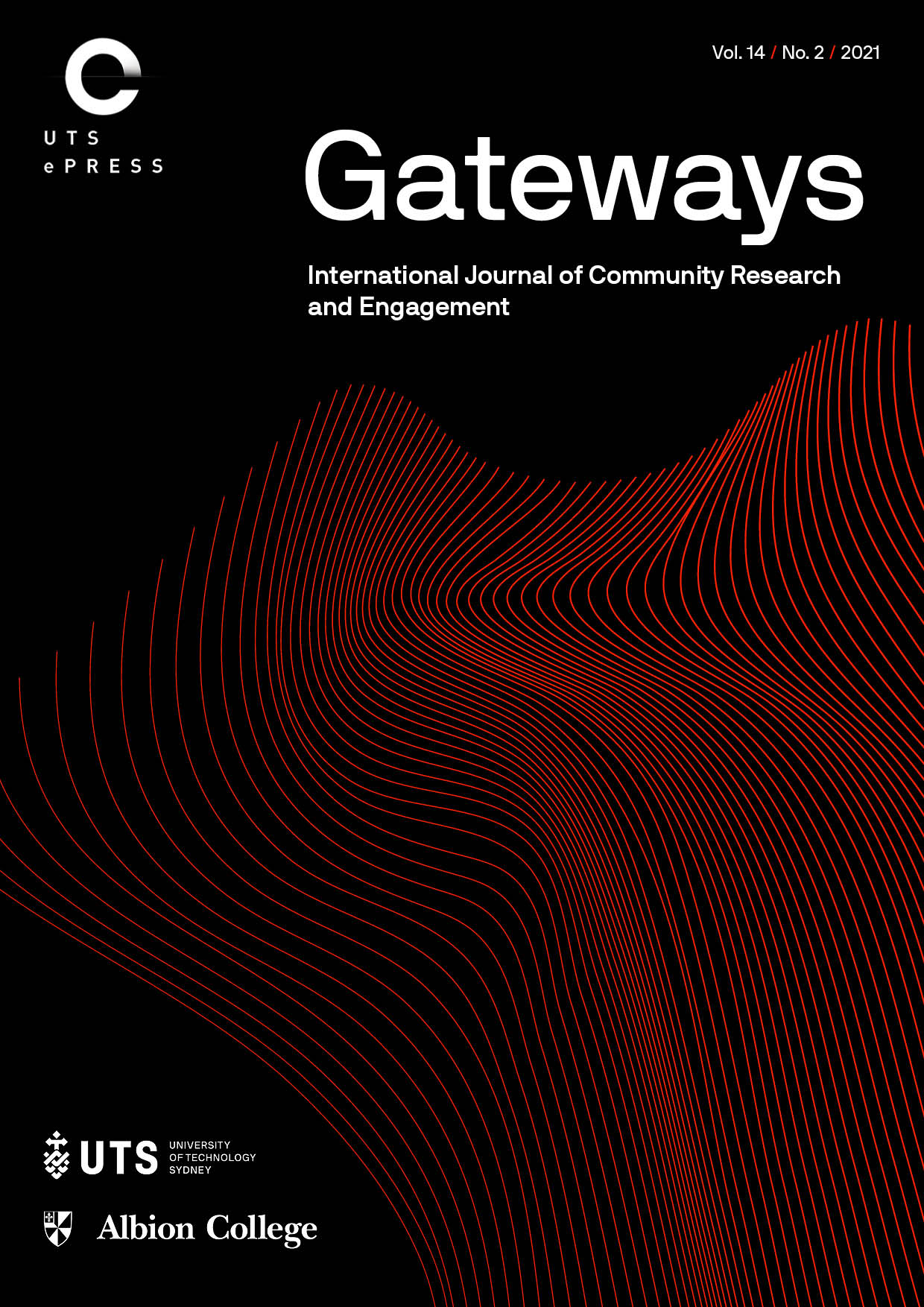Community Members as Facilitators: Reclaiming Community-Based Research as Inherently of the People
Main Article Content
Abstract
This article aims to rethink the positionality of community in community-based research collaboration and advocate the need for community members to facilitate CBR processes to counter power imbalances in community-university engagement. I reflect on my lived experience as a community-based facilitator through a feminist post-structural lens focused on the interplay between concepts such as subjectivity, margin-centre and performativity. I argue that, despite the community-engaged scholarship egalitarian ideal, university-community engagement still echoes the old researcher-researched binary in which academics remain the hegemonic pole. In addition, as a medium of power/knowledge, the university fabricates the community and its marginality. Thus, a margin-centre relationship is established, in which community groups must claim their marginality to receive a share of the centre (the university), such as research skills and information. In these margin-centre dynamics, university and community can be understood as identities and subject positions to be taken up by individuals. In essence, these positions are expressions of regulatory power that normalises subjectivities, a condition in which individuals exist as subjects in the social space. Insights from the work of Judith Butler lead to the understanding that, in order to conceive community members as CBR facilitators, normalised and stabilised binary identities (university-community) should be unsettled. This entails individuals who are subjected as ‘the community’ to escape subjection by moving towards recognition of a subjectivity that is not prescribed or is still marginalised within the discourse. In escaping subjection, community groups may exercise power in order to establish new power relations in which CBR becomes more community-led, yet still collaborative.
Article Details
Issue
Section
Authors who submit articles to this journal from 31st March 2014 for publication, agree to the following terms:
a) Authors retain copyright and grant the journal right of first publication with the work simultaneously licensed under a Creative Commons Attribution License that allows others to share and adapt the work with an acknowledgement of the work's authorship and initial publication in this journal.
b) Authors are able to enter into separate, additional contractual arrangements for the non-exclusive distribution of the journal's published version of the work (e.g., post it to an institutional repository or publish it in a book), with an acknowledgement of its initial publication in this journal.
c) Authors are permitted and encouraged to post their work online (e.g., in institutional repositories or on their website) prior to and during the submission process, as it can lead to productive exchanges, as well as earlier and greater citation of published work (See The Open Access Citation Advantage Service). Where authors include such a work in an institutional repository or on their website (ie. a copy of a work which has been published in a UTS ePRESS journal, or a pre-print or post-print version of that work), we request that they include a statement that acknowledges the UTS ePRESS publication including the name of the journal, the volume number and a web-link to the journal item.
d) Authors should be aware that the Creative Commons Attribution (CC-BY) License permits readers to share (copy and redistribute the work in any medium or format) and adapt (remix, transform, and build upon the work) for any purpose, even commercially, provided they also give appropriate credit to the work, provide a link to the license, and indicate if changes were made. They may do these things in any reasonable manner, but not in any way that suggests you or your publisher endorses their use.
For Volume 6 (2013) and before, the following copyright applied:
Articles published by UTSePress are protected by copyright which is retained by the authors who assert their moral rights. Authors control translation and reproduction rights to their works published by UTSePress. UTSePress publications are copyright and all rights are reserved worldwide. Downloads of specific portions of them are permitted for personal use only, not for commercial use or resale. Permissions to reprint or use any materials should be directed to UTSePress.
